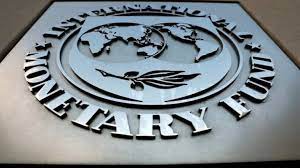The IMF Board will meet on July 12 to review the loan agreement with Pakistan
According to a report in the media on Wednesday, the IMF executive board will meet on July 12 to evaluate the USD 3 billion Standby Arrangement with cash-strapped Pakistan and may potentially decide to release the USD 1.1 billion first tranche as part of the loan program.
After months of discussions that brought Pakistan dangerously close to default, the government and the International Monetary Fund (IMF) finally came to a staff-level agreement on June 29 to pump USD 3 billion into the faltering economy.

If granted, the nine-month Stand-by Arrangement (SBA) would deliver USD 3 billion, or 11% of Pakistan’s IMF quota, which will relieve the nation’s financial problems, the Washington-based Dawn daily said.
As the nation continues to struggle with a severe balance of payments problem and falling foreign currency reserves, the first payout is subject to the board’s approval.
Pakistan was not included in a previous timetable published in June, which led some people to believe that the Washington-based lender would not disburse cash from a previous program that was set to expire on June 30.
Pakistan had anticipated receiving about USD 2.5 billion from the international lender located in Washington, but instead received USD 3 billion.
According to the study, Pakistan has already completed eight of the eleven programme evaluations indicated, with the ninth review still pending as of November 2017.
Pakistan has, however, given the IMF a letter of intent promising that no additional tax amnesty would be implemented in the next nine months.
The letter, which was signed by the State Bank governor and Finance Minister Ishaq Dar, promises the lifting of trade restrictions as well as the honoring of agreements with other financial organizations and bilateral donors that have given the nation money.
In addition to the political unrest, Pakistan’s economy has been in a free fall mode for a number of years. This has put tremendous strain on the impoverished masses via unregulated inflation, making it almost hard for many people to make ends meet.
Recent obstacles have included disastrous floods from a year ago and rising commodity prices as a result of the conflict in Ukraine.
Last year’s floods in Pakistan claimed the lives of over 1,500 people and ruined millions of houses, acres of agriculture, and cost billions of dollars in economic damages.







